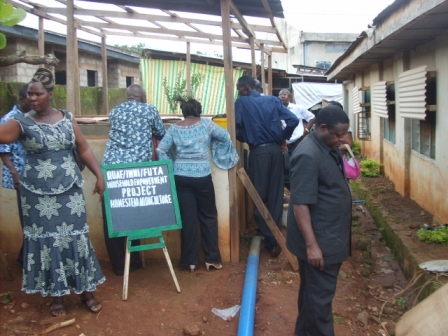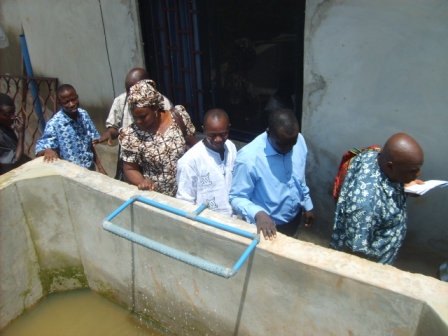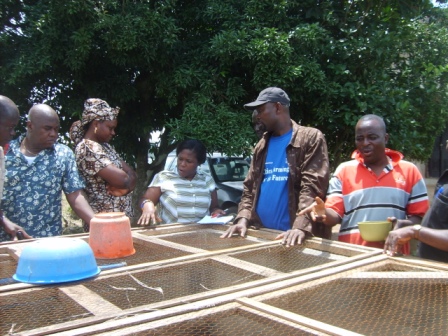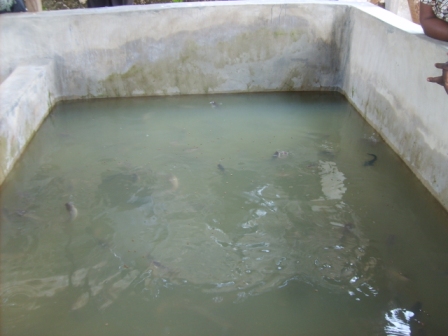Akure Pilot Project
The Akure pilot project mainly seeks to reduce urban poverty and enhance nutritional security of poor households in the city. This was necessitated by the growing poverty and the deteriorating nutritional problems in the city and Nigeria as a whole, which falls short of the daily requirement of 53.8g per capita per day. This pilot project is on promoting urban homestead fish culture through participatory approach, which involves training participants on fish production and establishment of homestead fish ponds.
The Akure pilot project, which is part of the larger RUAF-CFF programme in the Anglophone West African Region, also seeks to popularize and make low income households adopt homestead fish culture in Akure.
The project is implemented by the Department of Agriculture Economic and Extension, Federal University of Technology, Akure and the Department of Fishery Resources, Ondo State Ministry of Agriculture, Forestry and Fishery Resources.

Akure pilot project site

Project officials on a visit to the project site
Project Outputs:
- Team members involved in the project had learnt new skills and knowledge in the area of multi-stakeholder processes, Monitoring & Evaluation as well as other important areas.
- Student involved in the project gained substantial knowledge in the area of action research
- The project had also led to gradual introduction of Urban Agriculture into the project and course curriculum of Agricultural Economics & Extension Department of the Federal University of Technology, Akure, Nigeria.
- Strong and effective partnership and network with the Fisheries Department of the Ondo State Ministry of Agriculture, Forestry and Fishery as well as the Integrated Waste Disposal Agency of Ondo State Government
- The income and nutritional level of beneficiary households had greatly improved with the implementation of the project. Their knowledge of homestead aquaculture had equally improved.

IWMI-RUAF officials interacting with farmers

Fish in a pond under the pilot project
For more details please read The Akure Pilot project synthesis report.






